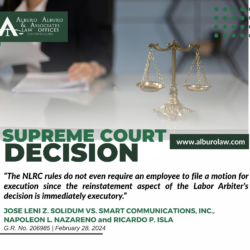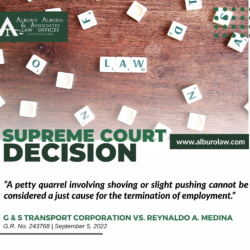The Supreme Court Decides: The NLRC rules do not even require an employee to file a motion for execution since the reinstatement aspect of the Labor Arbiter’s decision is immediately executory.
Article 223, paragraph 3, of the Labor Code mandates the employer to promptly reinstate the dismissed employee, either by actual reinstatement under the conditions prevailing before the dismissal, or through his or her inclusion in the payroll.











